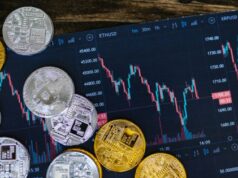You cannot buy crypto from your bank. Once you decide to purchase Bitcoin, Ethereum, or other cryptocurrency, you need to set up an account with a crypto trading platform. This allows you to exchange your currency to digital assets.


Here are some things you should know before choosing a crypto exchange.
What is a Crypto exchange?
An crypto exchange lets you buy and trade cryptocurrency. An exchange can be used for trading one crypto for another, such as converting Bitcoin to Litecoin, or to purchase crypto using regular currency such as the U.S. Dollar. Exchanges are updated to reflect the current market prices of the cryptos they offer. You can also convert cryptocurrency back to your currency on an exchange.
What to look out for in an exchange
Accessibility
Because of state or national regulations, you may not be able to buy and sell crypto on certain exchanges because of your geographic location. China is one example of a country that has banned its citizens from accessing crypto-exchanges.
You will often find information on the geographic limitations of an exchange, as well as other accessibility factors such as national currencies accepted, on the website or in the terms and conditions.
Security
As cryptocurrencies are not backed by a central institution, there is no protection for your cryptocurrency this way. Coinbase and Gemini have U.S.-based exchanges that keep your balances. They store your money in FDIC-insured bank account accounts. FDIC insurance is not available for cryptocurrency balances.
Some exchanges offer insurance policies to protect you crypto from hackers and fraud. Coinbase, for instance, has an insurance policy of $255 millions. This means that account holders are protected in the event that Coinbase’s reserves are hacked or any crypto amount above $255 million is taken. Kraken is one example of another company that relies on its security procedures to protect clients, rather than having insurance policies.
You can keep your crypto holdings in an exchange, or move them into your own wallet for a shorter time. However, security of the exchange should always be your top priority. You can check to see how much of the assets that exchange has offline and in hard storage.
Fees
Fees are an important consideration. However, you should not let a high fee structure deter you from joining an exchange. For the extra protections and insurance provided by the larger exchanges, higher fees may be worth it.
While exchange fees are not a fixed price, they can often be a percentage. Cash App and other exchanges charge fluctuating fees that are based on price volatility. Fees are usually charged per transaction. They can vary depending on whether the seller is the buyer or the seller. There might be additional fees depending on what currency you trade. Before paying any cash, be sure to understand the exact fees that an exchange may charge for your crypto transactions.
Liquidity
The exchange you choose to trade crypto should have sufficient trade volume so that you can buy, sell, and trade them as you like. In this instance, size is important. The largest trade volumes are often the most popular.
Successful spread trading requires a combination of technical analysis, risk management, and market knowledge.









